Armstrong World Industries, designer and manufacturer of interior and exterior architectural applications like ceilings, walls, and metal solutions, recently announced its acquisition of Canada-based Geometrik, according to a news release. The British Columbian Geometrik specializes in designing and manufacturing wood acoustical and wall systems.
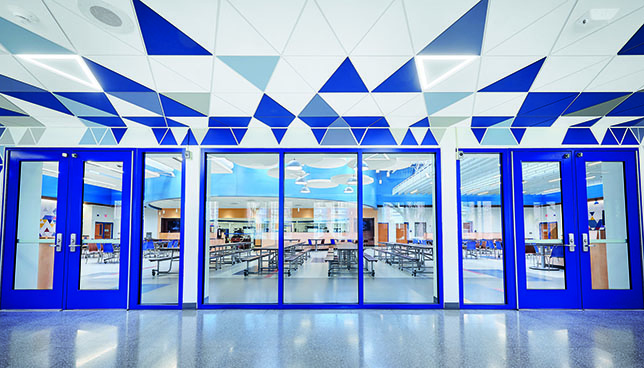
In recent years, the educational world has gained greater appreciation for the ways a space’s aesthetics, just like its acoustics, can positively impact educational outcomes. Consequently, engineering, designing, and constructing a school environment demands acoustics to be equally an art and a science, requiring architects and designers to see with their ears, while acousticians must hear with their eyes.
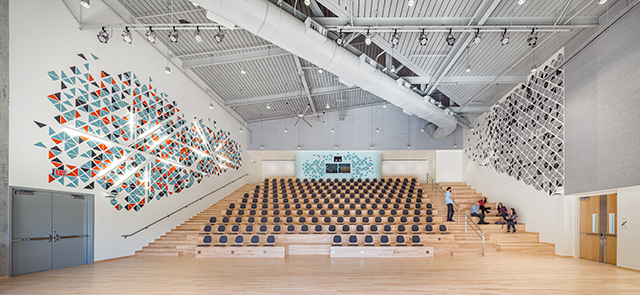
Poor acoustics within classrooms create challenging environments for children, who possess heightened sensitivity compared to adults or older peers. These conditions, characterized by noise and reverberation, significantly impact their ability to engage in tasks that require listening comprehension, as well as non-auditory functions like short-term memory, reading, and writing.

This episode’s guest is Michael Dunn, Technical Sales Manager for Energy Saving Ceilings & PCM at Armstrong World Industries. He’s here to talk about how Phase Change Material (PCM) can help provide energy savings in schools.

We asked our readership to send us their predictions for 2024 trends in educational facilities. Across K–12 and higher-education campuses both, we asked for opinions on topics like technology, flexible learning spaces, campus safety & security, disaster response, and more. This article is the third in a three-part series compiling responses from educational professionals and vendors.
Sustainable textiles and acoustical management solutions provider Carnegie recently launched a new series of fabrics called the Full Spectrum Collection, according to a news release. The series features 45 colors and patterns across a variety of price points that were designed for use in commercial spaces and offer high degrees of performance, style, and durability.

Acoustics isn't only about creating quite classrooms. It's a critical part of the overall IEQ of a school—from classrooms to nurses' offices to administration spaces. New and better technologies exist to give schools solutions that achieve what is needed in today's world while keeping budget parameters in mind. These acoustical solutions start at the top with ceilings, and not all ceilings are alike. Join us as Sean Browne, Senior Manager of Research & Development for Armstrong World Industries, walks us through choosing the right ceiling to optimize acoustics for better learning experiences.
A simple and tangible step that K–12 leaders can take to support all students more effectively is to make sure students can hear their teachers and their classmates. When students can hear instruction clearly, everyone benefits.
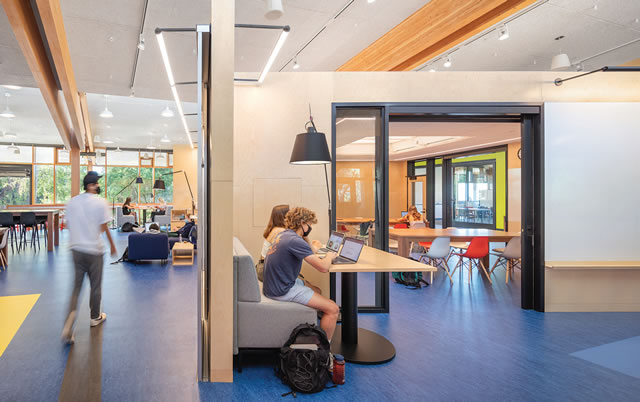
In 2021, the Thacher School, located in Ojai, Calif., opened the doors to its project-based learning hub. The space was designed to support a multidisciplinary learning environment with collaborative common areas and classrooms that provide greater flexibility in their use.
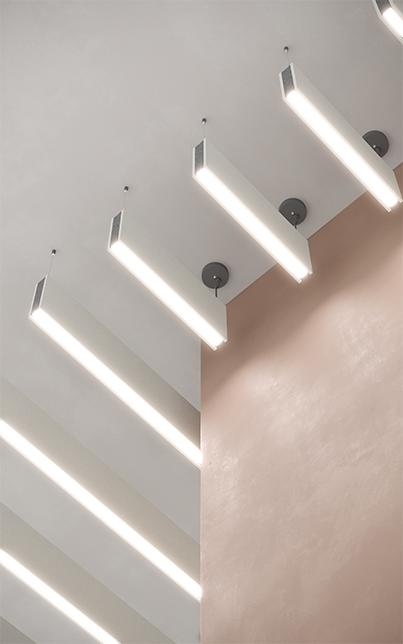
Luxxbox, which provides acoustic and flexible workspace solutions, recently announced significant upgrades to its slimline acoustic LED system.

Today’s guest is Kristin Moore, the Vice President of Market Segments at Armstrong World Industries. We'll talk about the importance of indoor environmental quality in creating and maintaining healthy learning spaces for kids.
Access to intelligible, clear audio has never been more important with educators and students back in classrooms across the nation.
Birchwood Lighting recently announced the launch of a new set of acoustic luminaries and panels designed for large, open spaces. The BWA250 luminaries and panels are intended to provide both seamless illumination and sound dampening capabilities in environments like open office spaces, common areas and education spaces.
Islington Junior Middle School in Toronto, Ontario, Canada, which serves students in grades PreK–8, recently announced that it has installed new acoustic ceiling and wall tiles in four of its classrooms.
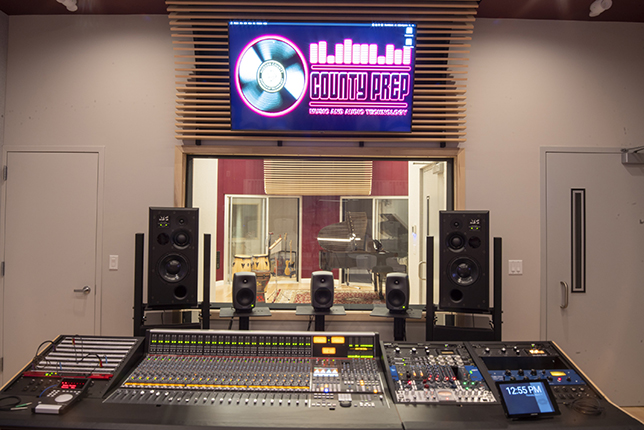
A career and technical high school in New Jersey has added new professional recording gear to one of its teaching spaces. County Prep High School, part of Hudson County Schools of Technology, added hardware from Solid State Logic (SSL), a UK-based company that manufactures analog and digital audio consoles for music and audio production. Students in the music and audio technology program learn how to write their own songs and produce their own music.
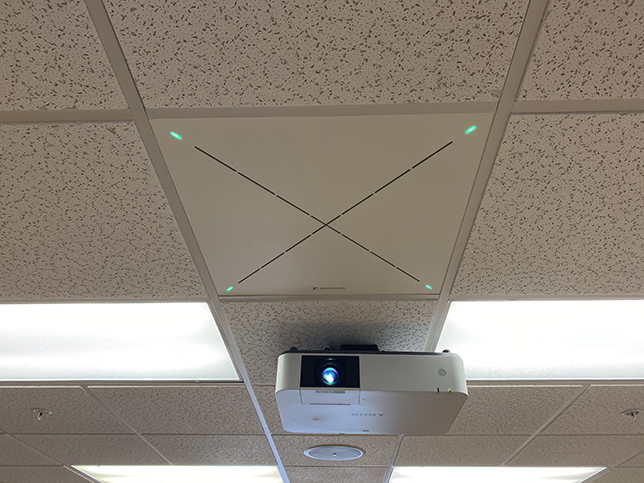
An effort at the University of South Florida has resulted in nearly a hundred classrooms being readied for simultaneous remote and in-person learning. The updates included installation of touchless sound systems and dual cameras.
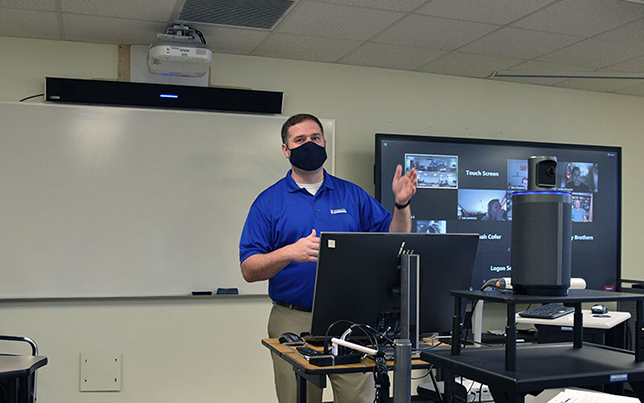
Athens State University, located in Athens, Ga., recently installed Nureva HDL300 audio conferencing systems in almost 30 classrooms on campus.
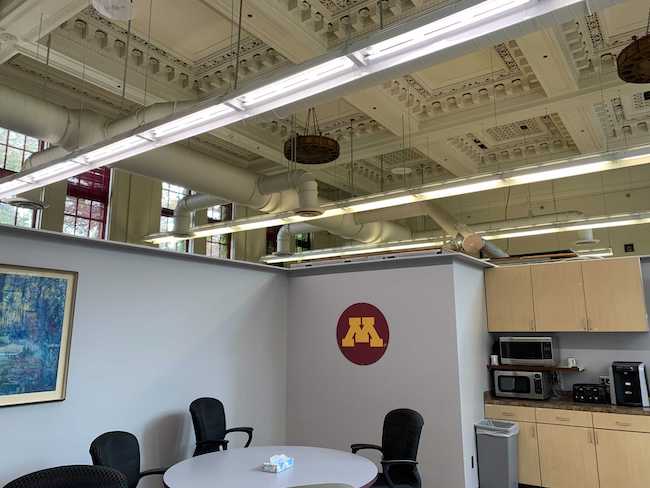
When a physical space offers a little passive noise control, such as high cubicle walls, private offices or softer, sound-absorbing materials, the effects on the well-being of each person — as well as their productivity — can be profoundly impacted.
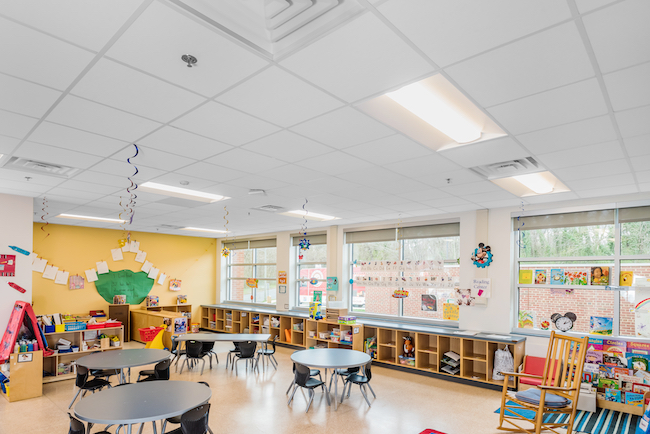
If there is not enough sound absorption in spaces for learning, they are overly loud, reverberant and stressful; not an environment conducive for effective education. Up to one of every four words cannot be understood by students in many classrooms, according to guidelines by the Acoustical Society of America.

Why address comfort in the design of a learning space? When students are physically comfortable, they’re more at ease: They can relax, block out negative thoughts and focus more effectively on instruction.
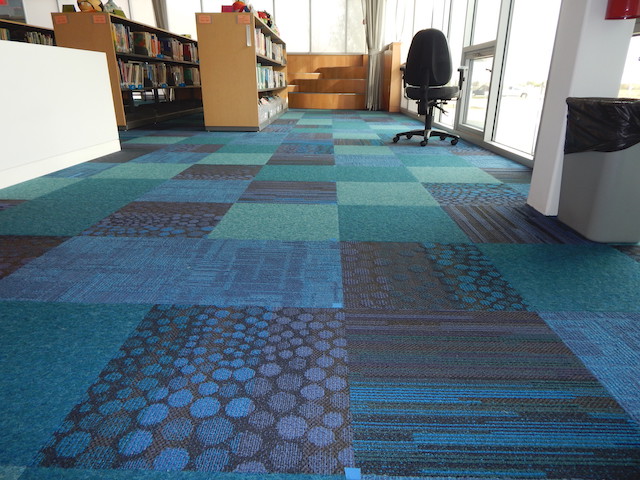
Walls, ceilings and floors, along with all interior and other building elements, must meet budgetary, acoustic, resilience, sustainability and maintenance requirements, with builders weighing such factors and others. Here are some ways that schools are making their interiors stand out.

How Interface LVT brought peace of mind to the Reading Friends school building
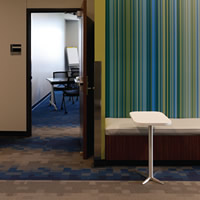
Creating learning environments that positively impact students.